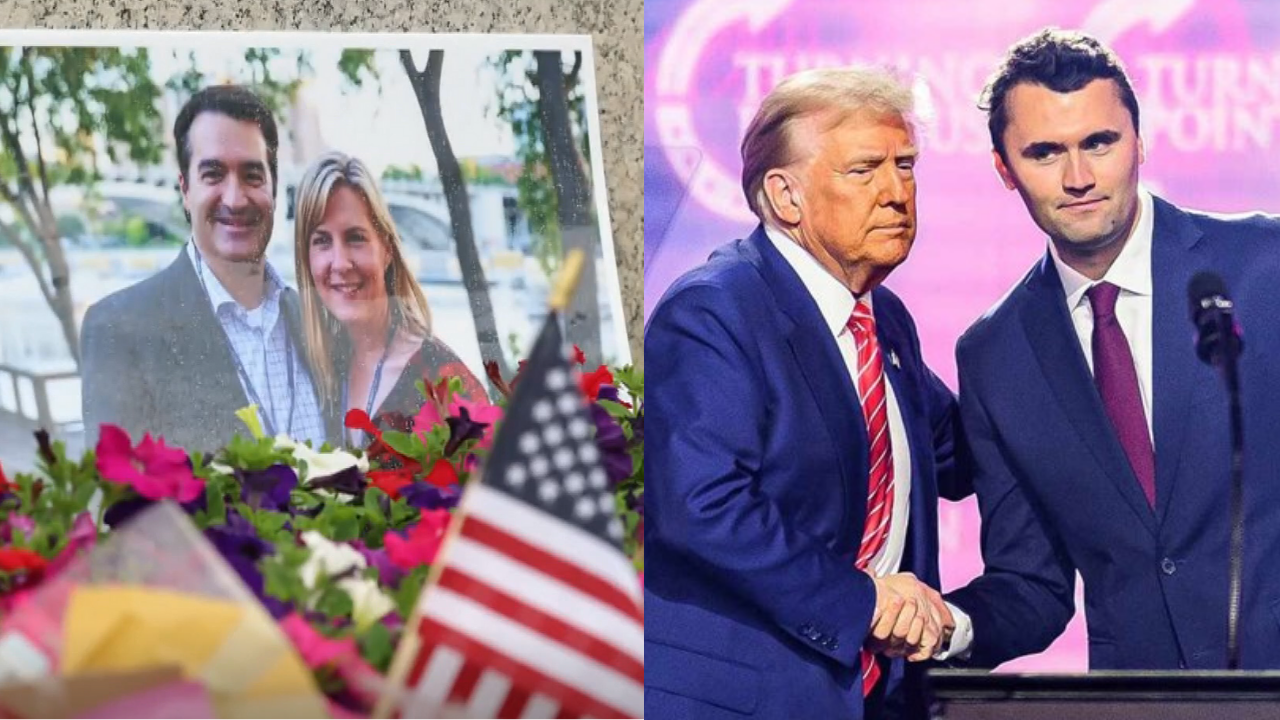Earlier today, a stunning development emerged in the aftermath of the recent shooting attributed to Charlie Kirk. Just 30 minutes ago, authorities confirmed that they had identified and spoken to the mother of the suspect. In an extraordinary turn, she gave an honest and deeply unsettling statement to investigators and the media, acknowledging her son’s responsibility and expressing her full support for the legal system in handling him. Her words carried the weight of both a grieving parent and a citizen determined to side with justice, even when it meant condemning her own child. She was quoted as saying, “Although it is my son, I fully support my son being arrested and handled according to the law for his crime. This is not the first time my son has caused trouble. Before this tragedy, he even killed his own uncle just because of a conflict. I cannot allow blood ties to blind me from the truth. What he has done is unforgivable.”
The mother’s statement shocked many who had been waiting anxiously for details about how the family would respond to the horrific accusations. Traditionally, the families of suspects either remain silent or attempt to defend their loved ones in public, but this case has unfolded in a dramatically different manner. Her firm stance underscores the gravity of the situation and sends a powerful message that the pursuit of justice must be prioritized over personal loyalty. For many observers, her testimony has become a chilling reminder of the broader issues at stake, as well as the depth of pain and shame that violent crime inflicts not only on victims but also on the families of perpetrators.
According to police sources, the suspect Charlie Kirk has a troubled history that goes back years. Neighbors and acquaintances recall repeated outbursts, conflicts, and violent tendencies that often pushed those around him into fear and discomfort. The most disturbing revelation to surface is the claim that he had previously taken the life of his own uncle during an earlier dispute. Although authorities had received reports of family violence in the past, the details of those cases had not been widely publicized until now. Investigators are reviewing records to determine how such a pattern of behavior escalated unchecked and why earlier interventions may have failed to prevent this most recent attack.
In her testimony, the mother expressed profound regret for not being able to prevent the destructive path her son had chosen. She admitted that the family had tried on several occasions to seek counseling and guidance for him, but he repeatedly rejected offers of help. His aggressive behavior, coupled with his unwillingness to accept responsibility, created a cycle of conflict that grew increasingly dangerous. She described the struggle of living with a son she feared yet still loved, a painful contradiction that many families with violent relatives can sadly relate to. “I cannot deny that he is my child, but I cannot ignore the blood that has been shed because of him,” she said, her voice heavy with both sorrow and determination.
The police confirmed that they are now preparing formal charges that will reflect not only the shooting incident but also the broader scope of his alleged criminal past. Prosecutors are expected to pursue the case aggressively, bolstered by the unique and powerful testimony of his own mother. Legal experts suggest that her willingness to publicly denounce her son could weigh heavily during court proceedings, making it far more difficult for defense attorneys to argue mitigating circumstances based on family support. Instead, the trial may stand as a stark demonstration of how accountability transcends personal bonds.
Public reaction has been swift and divided. Some citizens expressed sympathy for the mother, recognizing the unbearable position she is in, torn between maternal love and moral duty. Others have praised her for her bravery, noting that it takes remarkable strength to condemn one’s own child for the sake of justice. On social media, her words quickly spread, sparking debates about the responsibilities of parents in situations where their children commit violent crimes. Many users commented that her honesty represented a rare and refreshing departure from the excuses that are often made in similar cases.
For the community affected by the shooting, the tragedy remains raw and painful. Families of victims are grappling with grief, and the scars will linger long after the legal process concludes. Yet the mother’s testimony may provide a small measure of solace, signaling that even within the suspect’s own family, there is recognition of the suffering caused and a demand for accountability.
As the investigation continues, one thing has become clear: this case is not merely about an individual act of violence, but about the devastating ripple effects of unchecked anger, unresolved conflicts, and systemic failures to intervene early. The mother’s decision to stand firmly on the side of justice, even at the cost of condemning her own son, has added a haunting and unforgettable dimension to an already tragic story.



